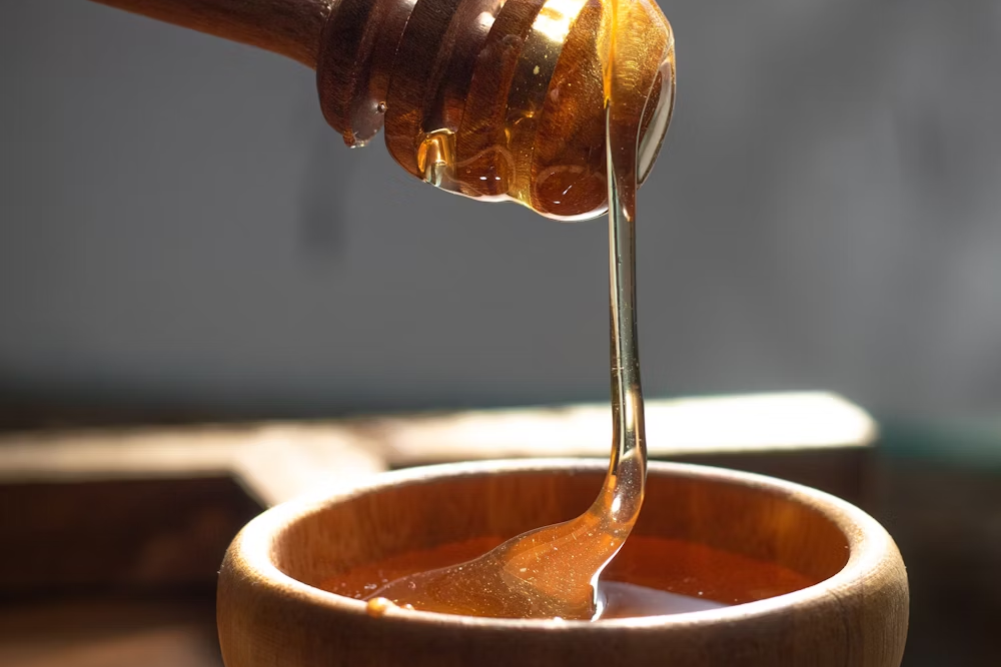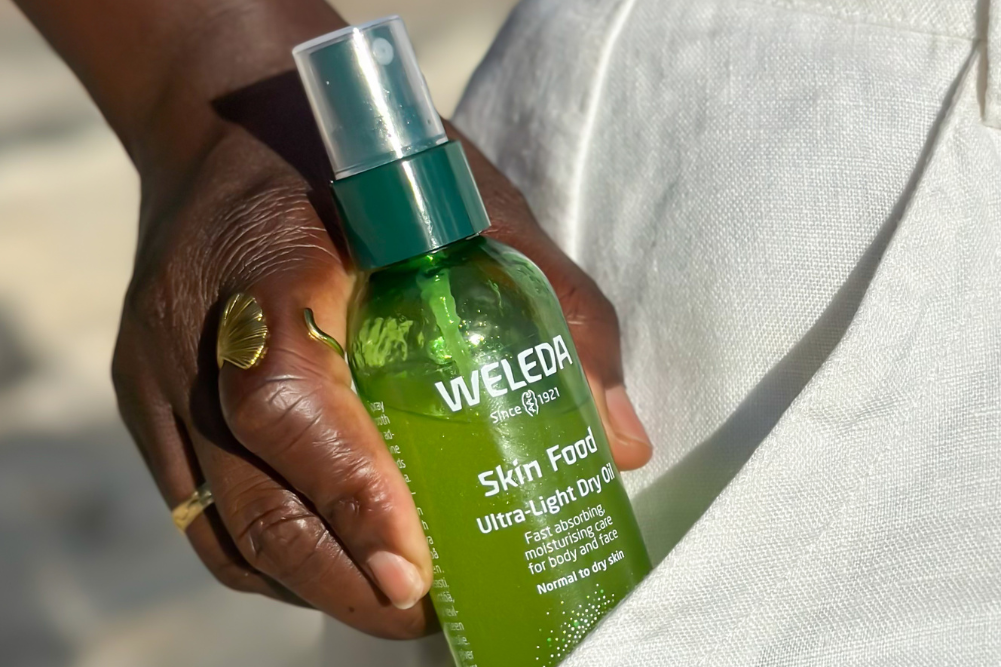How to heal eczema
When my daughter was just three weeks old, she had eczema break out all over her little body. A visit to the allergist determined she was allergic to eggs, which I subsequently eliminated from my diet (as I was breastfeeding) and her eczema cleared up within a week. It was that simple. With allergies rampant in both sides of the family, it wasn’t surprising. The allergist worryingly told me that she would probably acquire asthma at some point, too. I breastfed her for two years and, while her diet was under my control, she showed no further signs of allergies or asthma.
Breastfeeding is such an amazing “free” superfood for babies. A study in the 1999 issue of the Journal of Allergy and Clinical Immunology showed that colostrum, the milk produced by the mother after the first few days of her baby’s life, might help prevent the development of inherited allergies. The study also showed that colostrum, which is high in protein and antibodies, promotes the production of protective antibodies in the child.
My daughter’s allergies, apart from the odd bout of hayfever, had been tempered until 10 years later when her own less wholesome food choices at school and friends’ houses weakened her system and her predisposition to eczema flared slightly. But, thankfully, there was still no sign of asthma. I wonder, had I not breastfed, whether her allergies would be far more chronic. So, while our kids can be predisposed to allergies and eczema, boosting the immune system through breastfeeding and a wholesome diet and chemical-free environment can definitely reduce the severity and even allay the manifestation.
Eczema is a chronic allergic condition marked by inflammation and itchiness. It affects most people at some point in their lives and can manifest differently with different causes. “Atopic” or “constitutional eczema” is the type that flares in people who have hyper-reactive or unbalanced immune systems and you’ll find they often share other conditions, such as hayfever, asthma and digestive problems. These tendencies can be appear in infancy as an inherited condition or years later, when the body’s defences are low due to poor lifestyle choices, poor gut health and chronic stress.
Eczema appears as dry, inflamed, scaly skin and can present anywhere on the body, but in children it usually flares around the mouth, in the flexures of the knees and elbows and on the trunk. Dermatitis is really just another name for eczema, though contact dermatitis affects the skin only temporarily. Once the irritant is removed, the rash usually clears up. Common irritants include jewellery, dust, chemicals in personal care and cleaning products, mould, certain plants, grasses and animal hair.
Constitutional eczema requires a multi-fold approach. While getting blood tests to determine allergens can be very helpful and eliminating the allergens from the diet for a period of time will reduce stress on the body, the best results come from simultaneously boosting and balancing the immune system and improving digestive health. With my daughter, I have found boosting her naturally low levels of zinc (often found in those with eczema) and B vitamins, improving her gut health, detoxing her liver and eliminating dairy and gluten to be very helpful.
Here are some helpful tips on how to deal with eczema, bearing in mind that it’s important to seek the help of your healthcare practitioner for individual assessment and treatment.
1. Get rid of leaky gut and improve gut health. A healthy gut is full of beneficial bacteria and has less of the unwanted bacteria. As 70 per cent of your immune system is in your gut, it makes sense to target gut health. Studies also show that improving gut health can help to significantly reduce allergies and improve levels of nutrients in the body. The most effective beneficial bacteria are Lactobacillus rhamnosus, Lactobacillus acidophilus and Bifidobacterium lactis. You can find these in supplement form. However lacto-fermented foods such as kefir have up to 10 different strains of good bacteria and are a great way to boost your levels of good gut bacteria.
Getting your zinc and B vitamin levels balanced will also help improve gut health as will getting enough of the other immune boosters such as vitamins A, C (natural anti-histamine) and E. Other gut helpers are slippery elm (great to include in a morning smoothie), marshmallow, aloe vera, licorice root, ginseng, meadowsweet, fennel tea, peppermint tea, green tea and chlorophyll-rich green vegies such as celery, alfalfa and sea vegetables.
Often, allergy sufferers have an issue with dairy and gluten as the proteins are hard to digest. It’s a good idea to try eliminating these from the diet for a while until gut health improves (or even longer term). Eat foods that are easy on digestion (grains can be harsh on a sensitive gut) such as soups and stews with loads of fresh vegetables and legumes.
2. Improve the body’s detoxification and elimination processes. In Chinese medicine the liver is the cause of all allergies. It’s believed that if the liver is sluggish and can’t get rid of toxins effectively, they will irritate the immune system and cause allergy symptoms such as eczema. Ways to improve these pathways include reducing foods that congest the lymphatics — dairy, refined carbs and sugar; reducing liver irritants such as alcohol and coffee; eating sulphur-rich foods such as broccoli, egg (if not allergic), Brussels sprouts, capsicum, onion and legumes; eating lots of vegetables and leafy greens; drinking purified water with a squeeze of lemon every morning, though vegetable juices in the morning are also good; exercising frequently — a good walk is a great, relaxing option; dry body brushing; having a diet high in soluble fibre; drinking eight glasses of filtered water a day; and using herbs such as dandelion, burdock, echinacea, red clover and yellow dock. Nutrients that promote detoxification include minerals, amino acids, folic acid, vitamins A, B, C and E, alphalipoic acid, glutathione and MSM (from natural sources only).
3. Magnesium supplementation has also been shown to be very helpful for eczema. Always seek the advice of your health practitioner before taking herbs or supplements, though.
4. Reduce inflammation and enhance immunity by eating omega-3-rich foods (flaxseed, coldwater fish, nuts and eggs). Evening primrose oil (an omega-6 oil) is also beneficial for eczema and reducing inflammation.
5. Avoid harsh soaps and any preparations that have a high chemical load. Tepid (not hot) showers are best and use soothing emollients or oatmeal wash balls (put oatmeal in muslin and tie to make a ball) are great alternatives to soap.
To assist with soothing and repairing the skin, try calendula ointment, natural papaya creams, evening primrose oil, coconut oil (also anti-microbial), herbal extracts of chamomile and licorice and zinc oxide cream, which is great for helping to soothe and create a skin barrier. If the skin is broken and looks infected, sometimes antibiotics are needed to control the infection. To stop the scratch/itch cycle, you may need to wrap the areas with bandages.
6. Reduce stress! Stress attacks the immune system and robs the skin’s lipid barrier of precious oils. Chronic stress can trigger allergies and eczema, so if you are stressed, try meditation, yoga or stress management classes, or talk to a counsellor or health practitioner.







